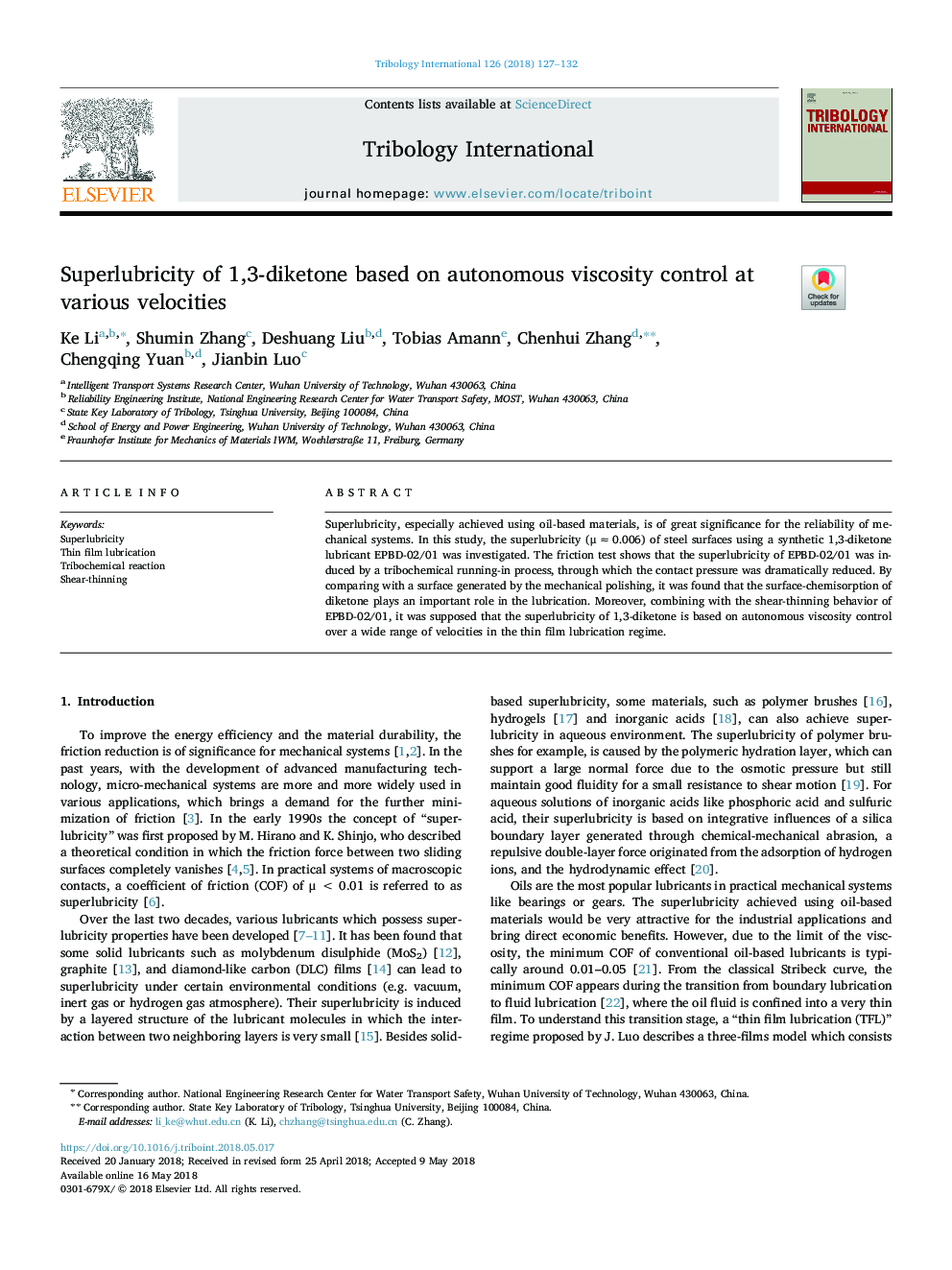| Article ID | Journal | Published Year | Pages | File Type |
|---|---|---|---|---|
| 7001493 | Tribology International | 2018 | 6 Pages |
Abstract
Superlubricity, especially achieved using oil-based materials, is of great significance for the reliability of mechanical systems. In this study, the superlubricity (μâ¯ââ¯0.006) of steel surfaces using a synthetic 1,3-diketone lubricant EPBD-02/01 was investigated. The friction test shows that the superlubricity of EPBD-02/01 was induced by a tribochemical running-in process, through which the contact pressure was dramatically reduced. By comparing with a surface generated by the mechanical polishing, it was found that the surface-chemisorption of diketone plays an important role in the lubrication. Moreover, combining with the shear-thinning behavior of EPBD-02/01, it was supposed that the superlubricity of 1,3-diketone is based on autonomous viscosity control over a wide range of velocities in the thin film lubrication regime.
Related Topics
Physical Sciences and Engineering
Chemical Engineering
Colloid and Surface Chemistry
Authors
Ke Li, Shumin Zhang, Deshuang Liu, Tobias Amann, Chenhui Zhang, Chengqing Yuan, Jianbin Luo,
